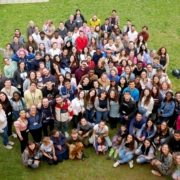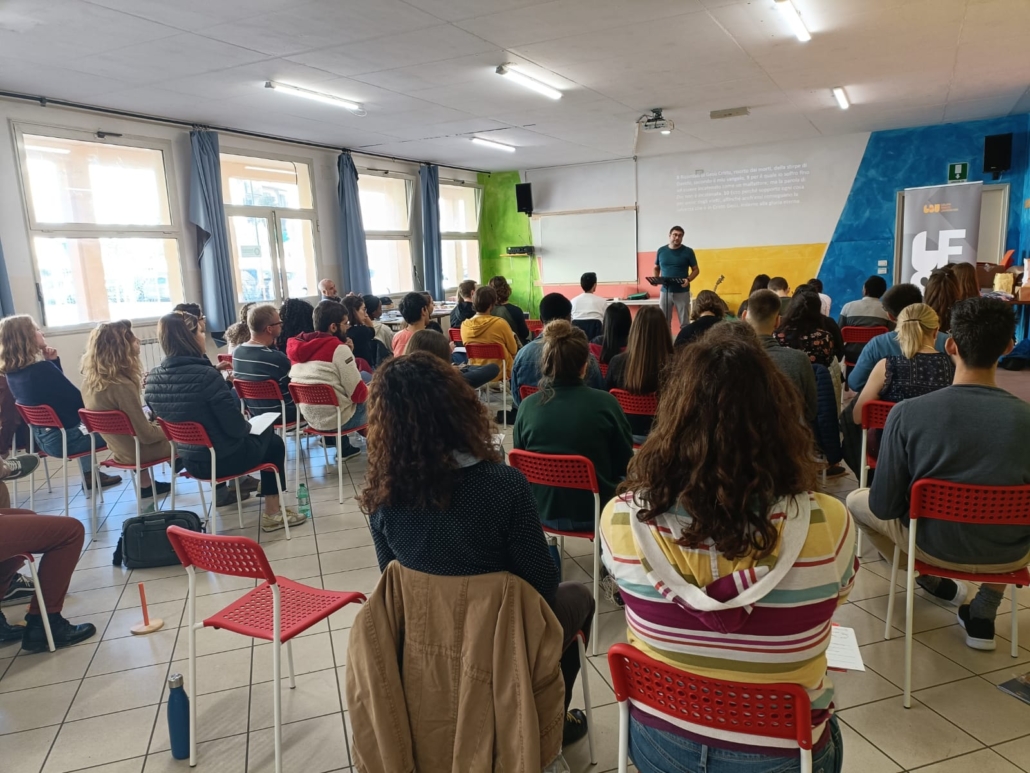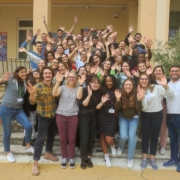by Marco Piovesan, GBU student
“… once you were not a people, but now you are the people of God” (1 Peter 2:10a)
Would you have ever imagined that 168 different cultures could coexist in one kingdom? Well, that is how it works in God’s kingdom. Yes, sometimes we think back to the fact that in Christ we have been called from every people and nation, but often we cannot really conceive the magnitude of this reality. The IFES World Assembly is, on the other hand, a way in which we can touch upon the authentic meaning of being one people, members of the one body of Christ.
The World Assembly is an event held every four years with the goal of bringing together delegates from all national movements that testify to Christ in the university as a ministry (e.g., GBU in Italy) to make decisions for global fellowship. The bureaucratic aspect, however, is little more than a pretext for experiencing a week of sharing and edification among brothers and sisters who share the same mission.
This year the date was set for early August in Jakarta, Indonesia. Participating in this event as a GBU student was something God used in an incredible way. One article could never contain all the spiritual richness that God was able to provide me, however, I cannot help but share some basic teachings from World Assembly.
We are not alone in our zeal
Among GBU students, I think several times we have faced the immense mission of sharing Jesus to the students at our universities, but we have also been discouraged from seeing something beyond our reach. In fact it is beyond our human reach. In light of this discouragement, after the initial enthusiasm in which we are full of ideas and initiatives, we find a balance in which to settle in as we go forward.
From here, we get to know other students and see the zeal for God with which they are filled with, has completely changed my way of seeing these difficulties. Yes, they too see this mission as something vast, but they have God at the center of their hearts, to the point that they think of every second as an opportunity to talk about the gospel.
This of course often requires them to commit their evenings to events, Bible studies, organizational meetings and face-to-face meetings, but the desire to see Christ glorified outweighs the personal desire to have time for themselves. In short, I saw in these students the full realization that God is worth sacrificing for and that the true way to reason, is to reason with an eternal perspective
“Therefore, my dear brothers and sisters, stand firm. Let nothing move you. Always give yourselves fully to the work of the Lord, because you know that your labor in the Lord is not in vain.” (1 Corinthians 15:58)
We are not alone in serving
One struggle I have experienced as a student over the past two years is wanting to organize some events at the university, but always finding too few people in the GBU group to make it happen.
At the World Assembly one evening I shared this struggle with the people I was sitting with at the table, and the response I received was immediately, “Invite us, we can come as help from abroad to participate and organize a week of events.” I was taken aback by the simplicity of this phrase, but it made me realize that being one flesh in Christ does not just mean greeting each other and telling each other good experiences once every four years: we can use this immense privilege to work closely together, meet each other’s needs, and toil together to see God’s kingdom advance.
At this point, I feel entrusted with the responsibility to make appropriate use of such a precious gift of having true co-workers in Christ with the same perspective.
We are not alone in our sufferings
No doubt different challenges are being faced in every corner of the earth: World Assembly was inevitably an opportunity to hear stories of struggles and suffering specific to different nations. We discussed issues of social justice, mental health, and stress created by the university setting.
However, I think what should cause us to reflect the most is the persecution (not just psychological) that so many Christians are subjected to. To find myself eating at the table with believers who literally every day expose their lives to death for the sake of Christ has raised many questions in me. The only way they can live is by embodying the gospel in their lives by their behavior to the point that this can trigger in people around them a desire to ask questions about the Christian faith
I wonder if, in the Italian context (in which we are far from having to risk our lives) I have the same desire to impersonate Christ in every area of my life. I wonder if I really am willing to make the same sacrifice for God that these brothers are exposed to everyday. I wonder if for me, as for them, “to live is Christ and to die is gain” (Philippians 1:21).
There is, however, something extremely incredible about these examples: Christ is so precious that it is worth giving our very lives to stay together with Him.
We are not alone because God is with us
Admittedly, World Assembly was not only rich in all these broad teachings, but it was also an opportunity to reflect from a personal point of view. Speaking of which, there is one concept that was reiterated so many times and which I cannot do without anymore: becoming aware of God’s presence in our lives.
So many times in the Bible God’s promise of “I will be with you” appears, but we often fail to consider this in our daily lives. I had a chance to talk with several people who have served in IFES for decades, and one thing each of them insisted on after so many years of ministry is that a personal relationship with God is the basis of everything we do. We cannot think of serving God without being in fellowship with Him. We need to seek Him and His presence: being aware that He is with us can radically transform the way we live for Him.
“He has shown you, O mortal, what is good. And what does the Lord require of you? To act justly and to love mercy and to walk humbly with your God.” (Micah 6:8)
The Christian life and even Christian service is a continuous walking side by side with God.












